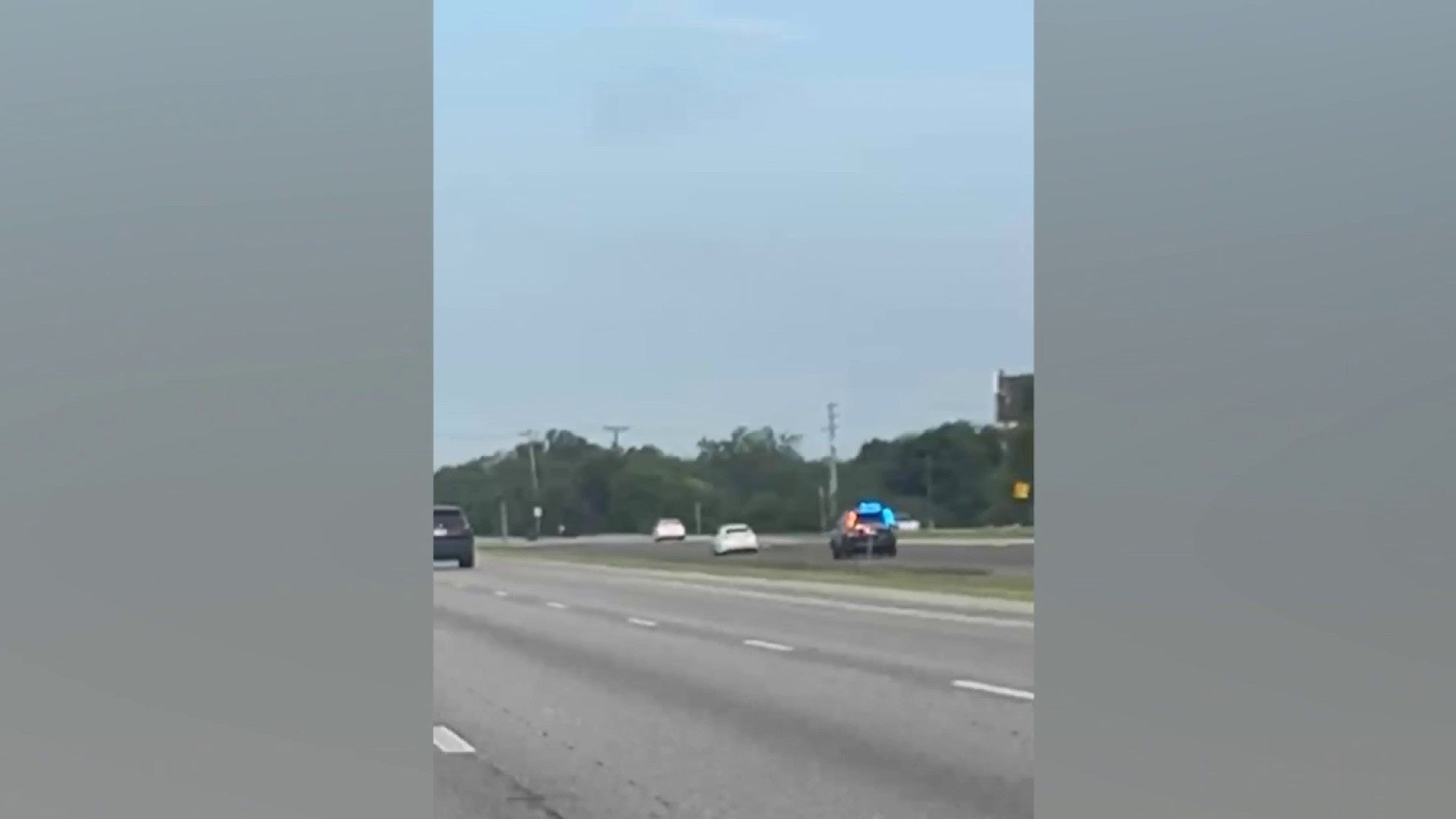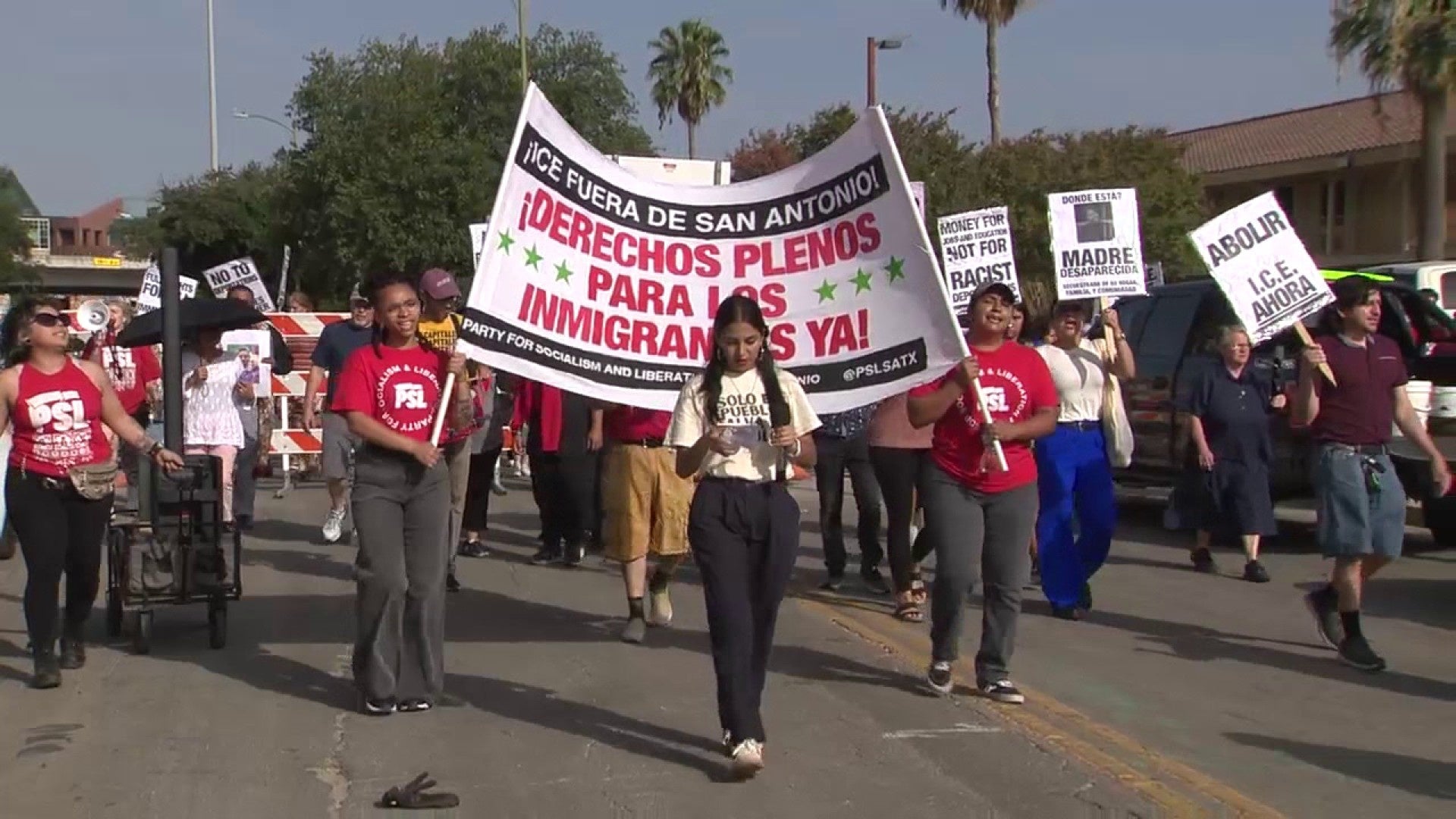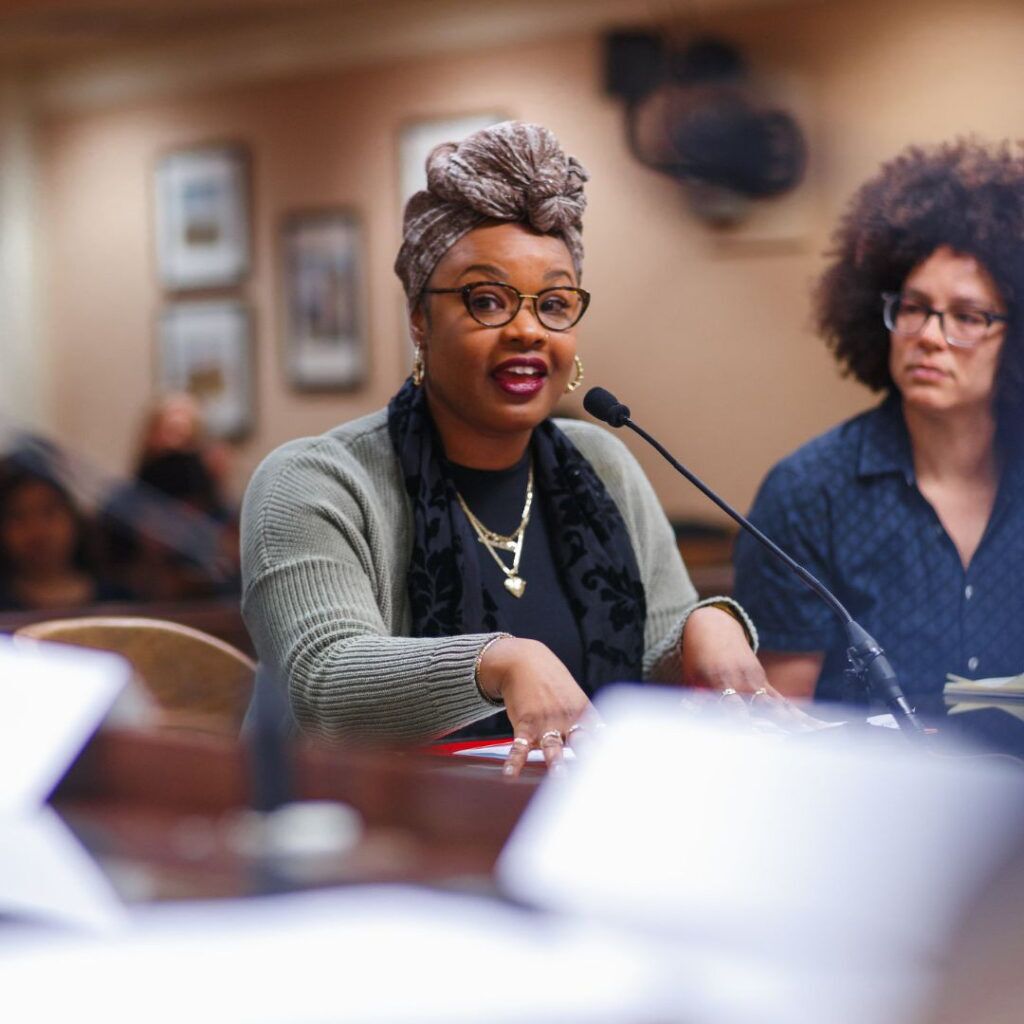
KSAT viewer captures portion of high-speed chase along Interstate 35 near Schertz
July 1, 2025
PSL San Antonio organizes event to educate community on immigration laws amid rising ICE deportations
July 1, 2025At a time of federal democracy backsliding, grassroots leaders are transforming personal struggle into community-driven policy solutions.
This essay is part of an ongoing Gender & Democracy series, presented in partnership with Groundswell Fund and Groundswell Action Fund, highlighting the work of Groundswell partners advancing inclusive democracy. You’ll find stories, reflections and accomplishments—told in their own words—by grassroots leaders, women of color, Indigenous women, and trans and gender-expansive people supported by Groundswell. By amplifying these voices—their solutions, communities, challenges and victories—our shared goal is to show how intersectional organizing strengthens democracy.
We are living through the hollowing out of federal protection. In real time, the rights to bodily autonomy, to asylum, to be transgender, visible and safe in this country are dissolving, state by state, ruling by ruling. And while the usual narrative goes something like, “Vote, wait, trust the system,” in many places, the people closest to the chaos have stepped up to envision and advance new laws.
In California this year, four bills moving through the legislature were not the result of think tank white papers or party strategists. They came from organizers: queer folks, women of color, survivors … people who have lived the very broken systems they are now trying to change.
A process that centers lived experience as a form of policy expertise is a cutting-edge theory of governance. One that says communities should not have to beg for inclusion in policymaking—they should be building the policy themselves.
Let’s look at what that actually produces.
AB 969: Safety or Economic Stability
In a year when domestic violence shelters are facing budget cuts across the country and Roe v. Wade’s reversal continues to destabilize reproductive safety nets, California is offering a different approach.
AB 969, introduced by Assemblymember Celeste Rodriguez, helps survivors access CalWORKs—California’s main welfare program—by expanding the Family Violence Option and making it easier to navigate the system.
It is a reminder that gender-based violence doesn’t end when someone walks out the door. Without financial independence, safety can remain out of reach. This bill closes the gap between escaping harm and rebuilding life.
AB 878: Housing Justice from the Ground Up
California’s housing crisis is one of the most intractable in the nation.
AB 878, authored by Assemblymember Ash Kalra, shows how the people most affected by housing insecurity—particularly those facing violence—are crafting real, grounded solutions. The bill protects survivors from eviction and retaliation when they seek safety-based housing accommodations. This idea came from a dozen domestic violence organizations and advocates who have spent years navigating the fine print of leases and loopholes.
SB 498: Ending Poverty Penalties
In jails across the country, people are charged for toothpaste, soap and even menstrual products. It is a quiet form of debt bondage that criminalizes poverty.
Sen. Josh Becker’s SB 498, which establishes a uniform indigence threshold in California jails, was developed with input from formerly incarcerated people and community organizers. This is what it looks like when policy isn’t about saving face but about saving people.
SB 418: Health Equity That Starts with Real People
Healthcare discrimination—against trans people, pregnant people, people of color—is growing nationwide.
Sen. Caroline Menjivar’s SB 418 directly bans that type of discrimination in health insurance. It offers a direct response to what patients and organizers are experiencing in clinics, hospitals, and insurance fights right now—not in theory, but in practice. It is a declaration of something fundamental: that who you are should never determine the care you receive.
We are living through a time of deep retrenchment. States like Texas and Florida are actively rolling back civil rights, from bans on gender-affirming care to laws targeting immigrant communities. The federal government has failed to enshrine basic protections around abortion, voting rights, and more. At the same time, grassroots movements are being told to “vote harder” or wait for the courts.
But this moment requires a different kind of political imagination—one where communities don’t just resist unjust laws, but write better ones.
That is what these California organizers are doing. And it’s not just about California. It’s a replicable model: Invest in community-led policy training. Bring people into the lawmaking process not as tokens but as co-authors. Demystify legislative drafting. Reimagine who gets to define what safety, dignity and justice look like.
Because the future we are fighting for isn’t going to be handed down from Washington. It needs to be built locally—one ordinance, one statute, one bill at a time.
The people best positioned to write those laws are already doing the work. It is time we gave them the tools and resources to fully succeed.
!function(f,b,e,v,n,t,s)
{if(f.fbq)return;n=f.fbq=function(){n.callMethod?
n.callMethod.apply(n,arguments):n.queue.push(arguments)};
if(!f._fbq)f._fbq=n;n.push=n;n.loaded=!0;n.version=’2.0′;
n.queue=[];t=b.createElement(e);t.async=!0;
t.src=v;s=b.getElementsByTagName(e)[0];
s.parentNode.insertBefore(t,s)}(window,document,’script’,
‘https://connect.facebook.net/en_US/fbevents.js’);
fbq(‘init’, ‘200522034604820’);
fbq(‘track’, ‘PageView’);
Great Job Nicola Schulze & the Team @ Ms. Magazine Source link for sharing this story.





